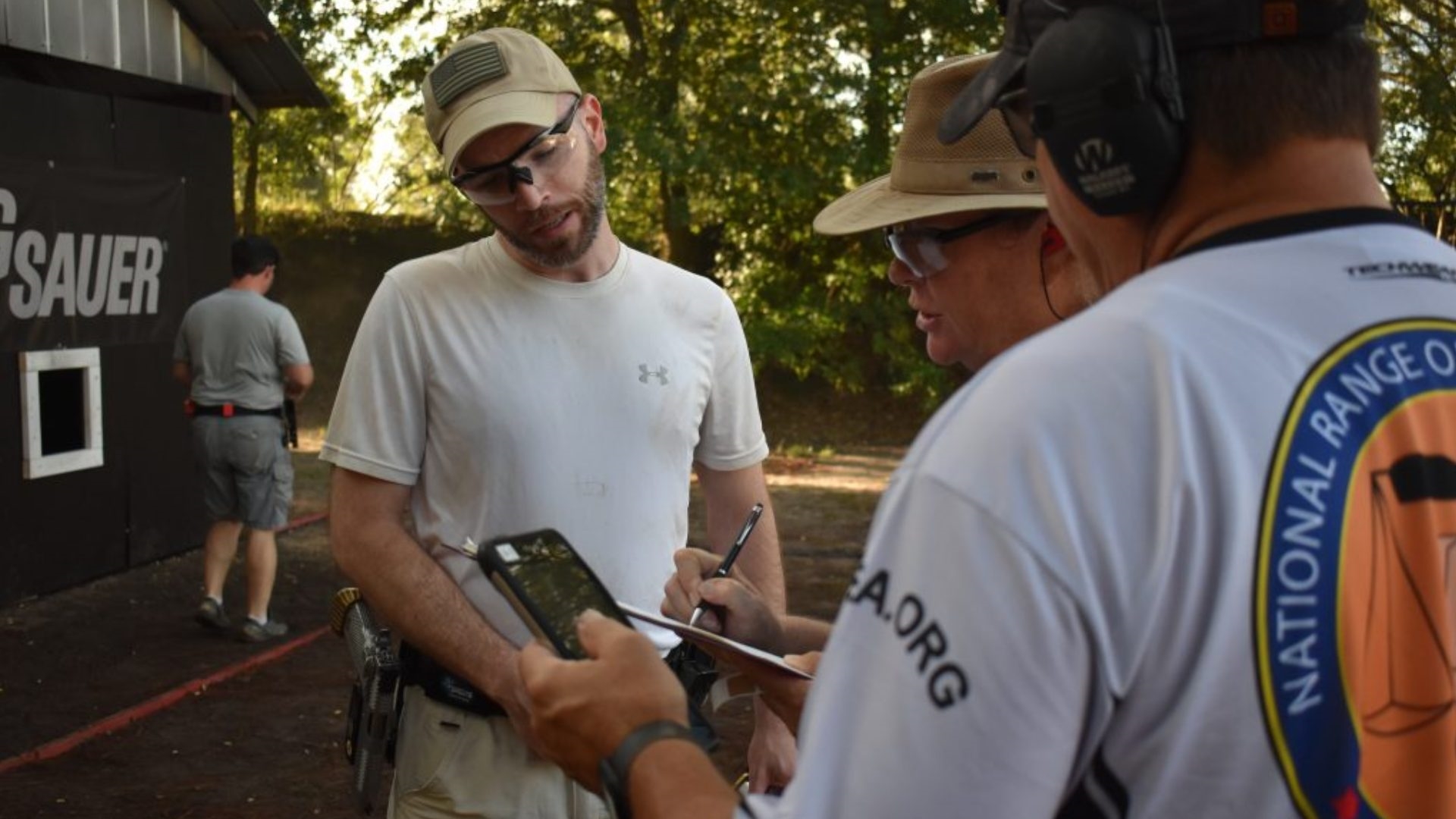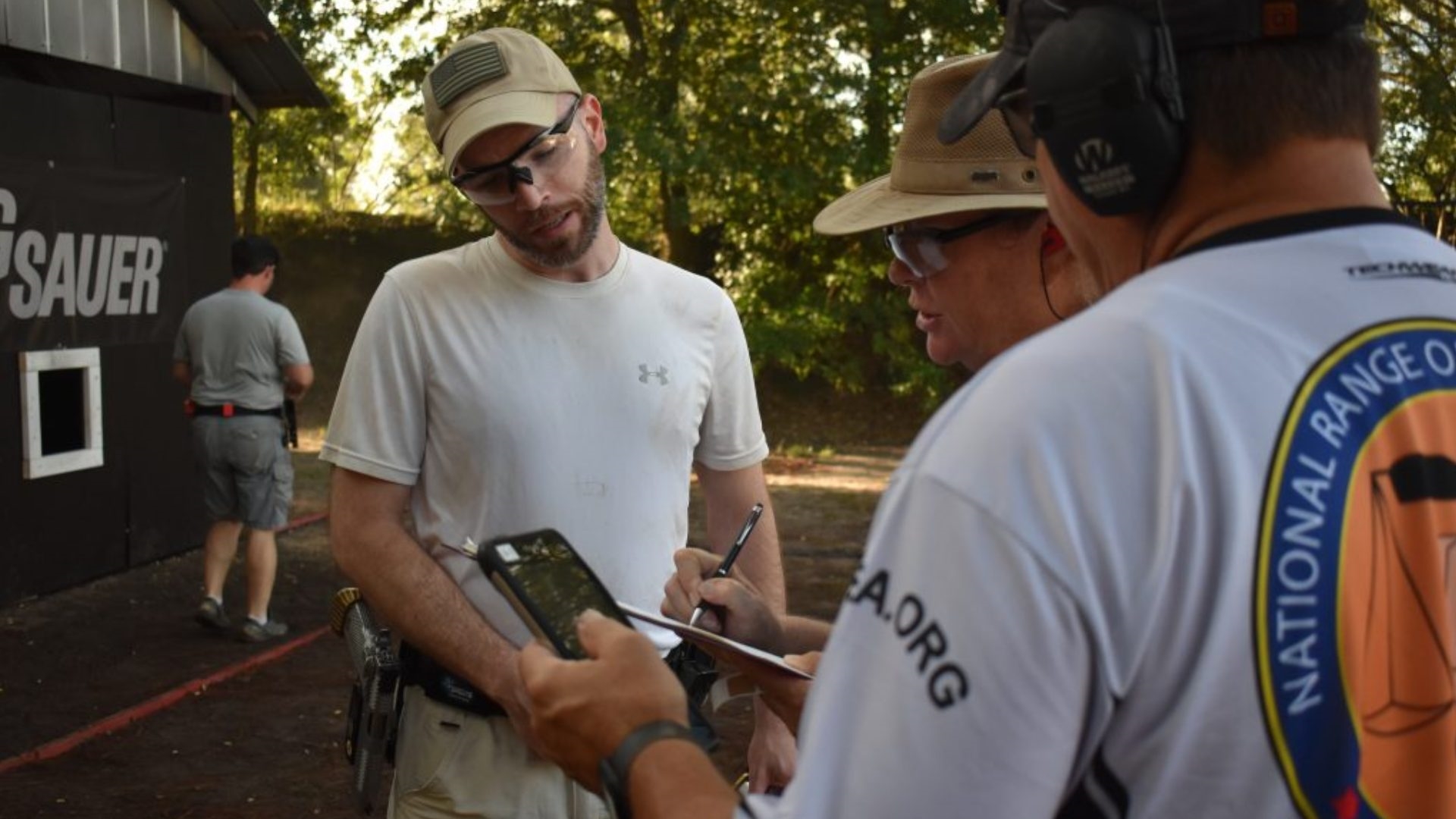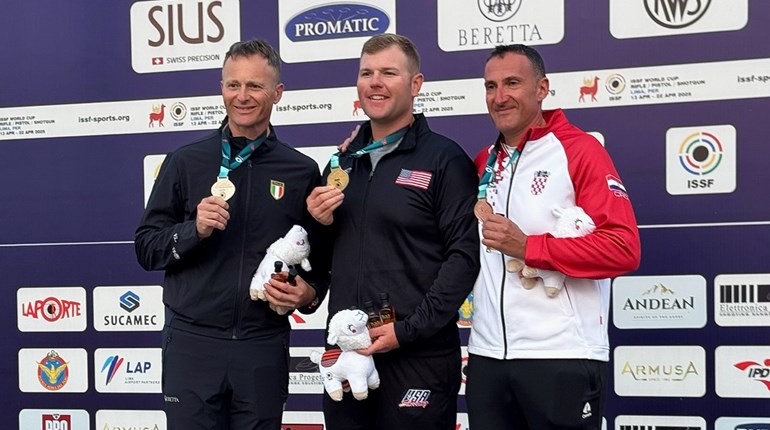
Seventeen years after becoming USA Shooting’s Chief Executive Officer/Executive Director and after more than 57 years in the sport, Robert Mitchell has decided to take his last shot August 31 after notifying USA Shooting Board of Directors and staff of his desire to retire earlier this week.
Mitchell, 69, began shooting at the age of 12, and started to compete on the international level in 1971. He was a member of the U.S. Army Marksmanship Unit (USAMU) Shooting Team and a volunteer Assistant National Coach to Bill Krilling since the first active U.S. Shooting Team was started in 1979. He was then hired as the National Coach in 1986 before becoming the Director of Operations in 1996. He officially became USA Shooting Executive Director/CEO on August 28, 1999.
He was the National Rifle Coach during three Olympic Games including Seoul 1988, Barcelona 1992 and Atlanta 1996 and helped lead Bob Foth and Launi Meili to medals in 1992.
Since his tenure as CEO, USA Shooting Team athletes have won 16 Olympic medals including eight gold, four silver and four bronze over the span of four Olympic Games. That’s four more medals than the previous four Olympic Games prior to his tenure, which included two domestic Games including Los Angeles 1984 and Atlanta 1996. Additionally, that’s fifth most among all U.S. sports during that time.
During that same span, the U.S. has racked up 28 World Championship medals, including 13 World Champions, and 283 overall World Cup medals.
It hasn’t always been easy. Four years removed from USA Shooting becoming the recognized National Governing Body for Olympic-style shooting in the U.S., Mitchell took over at a time when the operating budget was less than $3 million and the organization had difficulty meeting its financial obligations. The staff was composed of nine full-time employees at the time. USA Shooting now operates on a $5.5 million budget with an additional $400,000 in direct athlete support provided by the U.S. Olympic Committee. With expanded operations, the staff has grown to 17 full-time staff members.
Among NGB Executive Directors, his years of service rank him second alongside USA Hockey’s Dave Ogrean, USA Baseball’s Paul Seiler and USA Badminton’s Dan Cloppas and behind only that of Chuck Wielgus of USA Swimming who has held his position for the past 18 years.
“When he became the CEO, he took over the leadership of an organization that was struggling to make payroll and provide even minimal support for athletes,” said two-time Olympic gold medalist Gary Anderson, who served as USA Shooting President from 2009-13. “During his tenure, he built USA Shooting into one of the most effective and respected sports governing bodies in the U.S. His leadership record is highlighted by organizational growth, fund raising successes and impressive USA Shooting Team accomplishments. Bob was unequaled as a fiscal manager. He was the best in the world at running shooting championships that could pay for themselves and even make a profit. His vision and management skills put together a fundraising and development program that lifted the USA up to the second position in the medal standings in both the 2008 and 2012 Olympic Games. And he did this using only a tiny fraction of the resources that all other nations in the top echelon had. All of us—athletes, coaches, officials, members and fans—owe Bob Mitchell a sincere and heartfelt sense of gratitude for leading our governing body and building it into a great organization that has served all of us very well.”
Mitchell has also helped grow USA Shooting’s international footprint as the organization has hosted 16 International Shooting Sport Federation (ISSF) World Cups since 1998. He has served on the ISSF Administrative Council since 2002 and was elected to a four-year term on the ISSF Executive Committee in 2006 and 2014. Mitchell has also served in the capacity of Technical Delegate (TD) for various World Cups and most recently was the TD for the 2015 Pan American Games. Presently, there are six different USA Shooting representatives as part of ISSF leadership positions including Vice President Anderson.
“When I joined the U.S. Shooting Team in 1986, I never gave thought or dreamed of a 30-year career in Olympic-style shooting,” Mitchell said. “It has been a most rewarding journey working with athletes, staff, the USOC, ISSF, sponsors and supporters in helping grow and guide our organization. I thank all who have contributed in many ways to the growth and success of USA Shooting.”
“I’ve been around this game a long time, since 1963,” said USA Shooting Board member and three-time Olympic medalist Lones Wigger. “I complained about things when I was a shooter, because that’s what athletes do. I’ve learned a lot since then and I’ve stood in those shoes once in a similar role and have worked with Bob twice as a Board member. To say that we always saw eye to eye would be inaccurate. But what I can tell you is that I’ve seen this man bring us up from the very bottom, when USA Shooting was at zero and struggling to keep the doors open. He helped propel this federation forward to the point it is today where we’re competitively successful, viable and financially strong. He deserves a lot of recognition for that and I salute him for a job well done.”
Bob graduated from the University of Toledo in 1970 with a BBA in Finance. He plans to remain active in the sport with regard to his ISSF commitments at least through 2018. He and his wife, Sue, reside in Centennial, Colorado.
USA Shooting’s current Board of Directors will meet soon to determine an appropriate succession plan and discuss interim solutions before a new USA Shooting Board of Directors is seated in 2017.


































